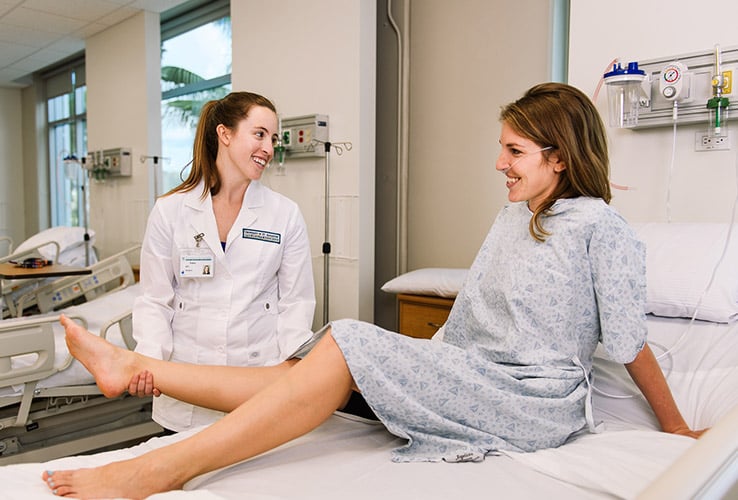This core team of USAHS leaders provides oversight for the Centers for Innovative Clinical Practice (CICP). These leaders are also members of the Innovation Steering Committee (ISC), which fosters innovative approaches to the curricular integration of educational technologies and the advancement of teaching excellence through new approaches and frameworks, such as simulation.
Dr. Elisabeth McGee
Senior Director of Clinical Learning and Innovation (FLSA)
Dr. McGee is the Director of Simulation Education and CICP Operations and the Vice Chair of the Innovation Steering Committee. Dr. McGee oversees the management, operations, and activities of the CICPs. She works with faculty and staff to support effective and safe simulation environments that employ current and best practices in simulation.
Email: [email protected]
Phone: 904-770-3543
Dr. Emily Frank
Senior Manager of Simulation Education and Operations (TXAU)
Email: [email protected]
Extension: 3160
CICP Staff
Kevin Capell
Clinical Simulation Specialist, TXAU
Extension: 3227
[email protected]
Matthew Sustaita
Simulation Technician (TXAU)
[email protected]
Savanna Mahn
Clinical Simulation Specialist (FLSA)
[email protected]
Julie Swann
Simulation Technician, FLSA
Extension: 13586
[email protected]
Mauricio Viana
Clinical Simulation Specialist, FLMI
Extension: 4151
[email protected]
Jarid Grier
Clinical Simulation Specialist, CASM
Extension: 5306
[email protected]
Andre Chan
Simulation Technician, CASM
760-410-5438
[email protected]
Close








